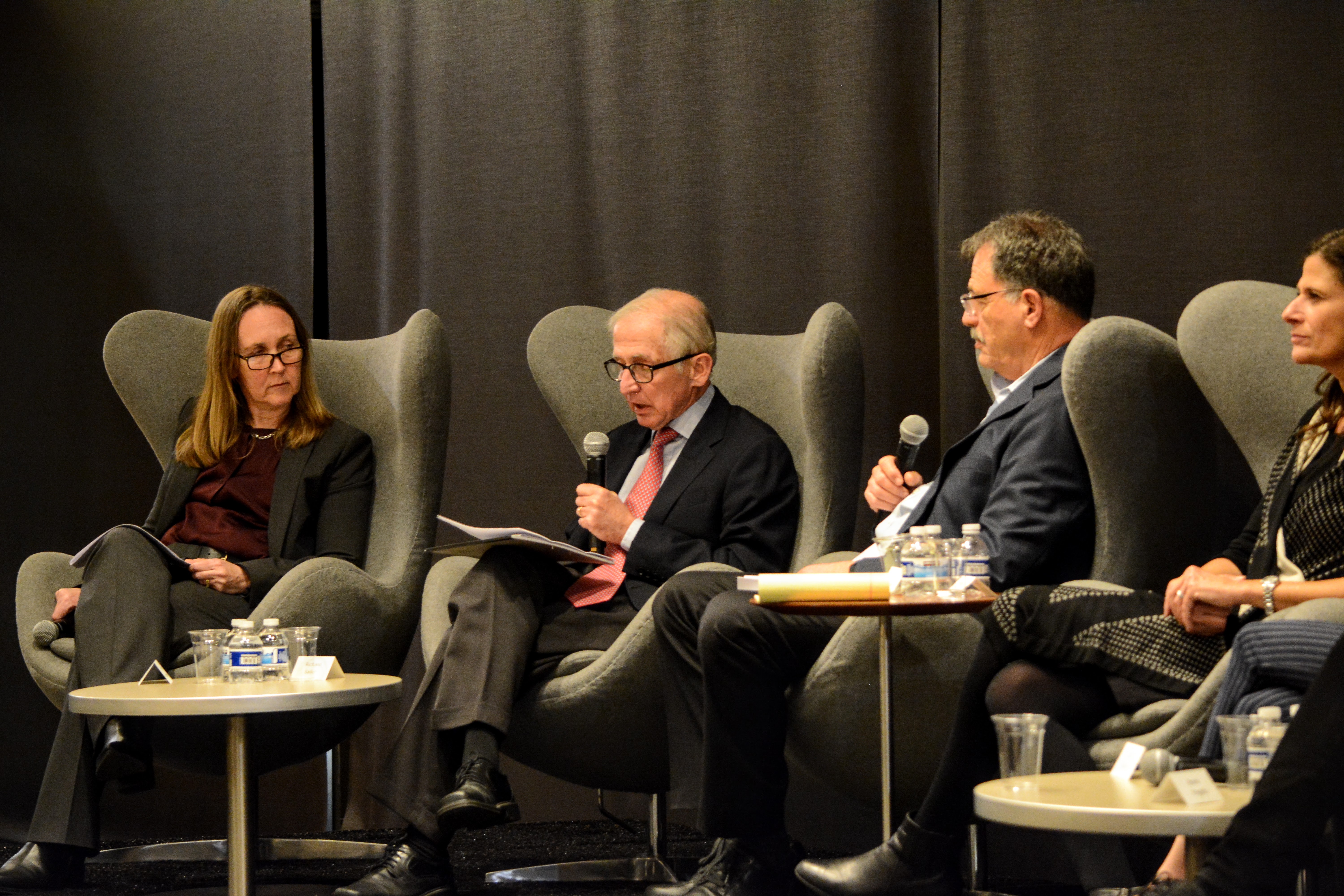University President Richard Saller and Provost Jenny Martinez addressed disruptions to classes from protests, leadership responsibilities amid the Israel-Gaza war and the Protected Identity Harm (PIH) reporting process at the Faculty Senate’s first meeting of the quarter Thursday.
In a statement on campus discourse around Israel-Gaza war, Saller said he was focused on “protecting academic freedom and the autonomy of the University.”
“I am not going to issue statements about international affairs or national affairs except insofar as they may have a direct impact on the University and its mission,” Saller said.
Jonathan Levin, dean of the Graduate School of Business, expressed support for Saller’s position. The University should not rush to release statements as it “models the wrong thing for students,” Levin said.
“It sends a message to our students that the world is simple, you can make judgments quickly, everything is clear and very unambiguous,” Levin said. “I want them to think slow, to hear from different people and to weigh these things carefully.”
Saller also addressed his and Martinez’s attendance at a panel on antisemitism hosted by the Blue and White Tent last Wednesday. The panel was disrupted by protestors, who criticized panelist Michal Cotler-Wunsh, the Israeli Special Envoy for Antisemitism, for equating antisemitism with anti-Zionism and for representing “a government actively committing genocide.”
Saller said their attendance was not an “endorsement” of Cotler-Wunsh’s views, and that while he did not agree with Cotler-Wunsh’s position, “the value of academic freedom is precisely to be able to bring different points of view together in debate.”
The Senate steering committee also reviewed a petition from faculty members over concerns that the Protected Identity Harm (PIH) reporting process has a negative effect on academic freedom and free speech. Provost Jenny Martinez announced the appointment of a committee to revise the reporting process.
The PIH system was updated in 2021 and collects data, sometimes anonymously, on instances of identity-based harm. Martinez acknowledged that the process had initially “generated confusion” in the community about its goals and protocol.
Martinez also clarified Stanford’s policy against speech that disrupts University activities, in light of student protests that interrupted Engineering School classes at the beginning of the quarter. She encouraged students to “use their free speech rights in designated times and places,” like White Plaza.
When asked by ASSU representative Divya Ganesan ’25 about the progress of a search committee to replace Office of Community Standards (OCS) leadership, Martinez said she could not provide any updates but would “circle back.”
Bernadette Meyler, the associate dean for research at Stanford Law School and chair of the ad hoc Committee on University Speech, raised results from an interim report on community opinions of University free speech policies.
The committee, established last February after controversies surrounding the Elimination of Harmful Language Initiative (EHLI), was created to assess whether constraints on academic freedom and speech existed in the University.
The committee aims to “suggest policies for improving protections on academic speech” while strengthening “faculty’s role in preserving it.”
Meyler described the committee’s “three main buckets of concern” surrounding University free speech: processes and initiatives at Stanford, protocol on public statements and the targeting and harassment of faculty and students.
“There has been a breakdown in trust around the University with regards to questions of speech, and that there is an urgent need to repair that trust,” Meyler said.
She said that a majority of the Stanford community remains “unclear” about “what speech is protected and what is not, and how the University decides that question.”
Processes and initiatives like the PIHR and EHLI, as well as the OSC’s implementation of Stanford’s fundamental standard, continue to “insufficiently protect speech, or at least do not adequately articulate how they are protecting speech,” Meyler said.
This confusion persists in concerns over Stanford’s statements on national and international political events, she added.
Based on the committee’s current findings, Meyler said many community members “worry that the University’s decision to speak, or not, signals a preference for some over others.”
Though Meyler said the principle of neutrality was also followed by peer institutions like Brown University, the University of Chicago and the University of California system, individual faculty members are not subject to this standard of neutrality.
“Institutional neutrality does not prevent faculty members from articulating any of their own positions,” Meyler said. “Rather, it prevents University leaders from stating an official position on behalf of the university.”
Among the suggestions Meyler proposed were articulating clear University principles for protecting speech, increasing training on these principles and updating the statement on academic freedom, originally adopted in 1974, to address “the hard challenges posed by the surrounding environment of social media and polarization.”
“Our committee is working on recommendations … that would distinguish the public square, most popularly represented by White Plaza, from the classroom and from the dorm,” Meyler said.
Moving forward, Meyler said the committee will assess other institutions’ policies and continue to converse with students and faculty and free speech. It will also be in communication with the recently-created committees on antisemitism and anti-Muslim and anti-Palestinian bias.
Meyler said the committee intends to strengthen anti-doxxing policies in response to increased concerns from students and faculty.
The committee is set to report on its final findings and recommendations to the Faculty Senate late spring quarter.
Aside from discussing University free speech policies, the Faculty Senate also heard from Grant Parker, vice chair of the steering committee, who said the committee had implemented recommendations from the 2020 external review of sexual misconduct practices that will likely be revisited after the government releases new Title IX regulations.
The steering committee also reviewed petitions from the ASSU on undergraduate STEM courses and adoption of the long-range planning report on postdocs.
